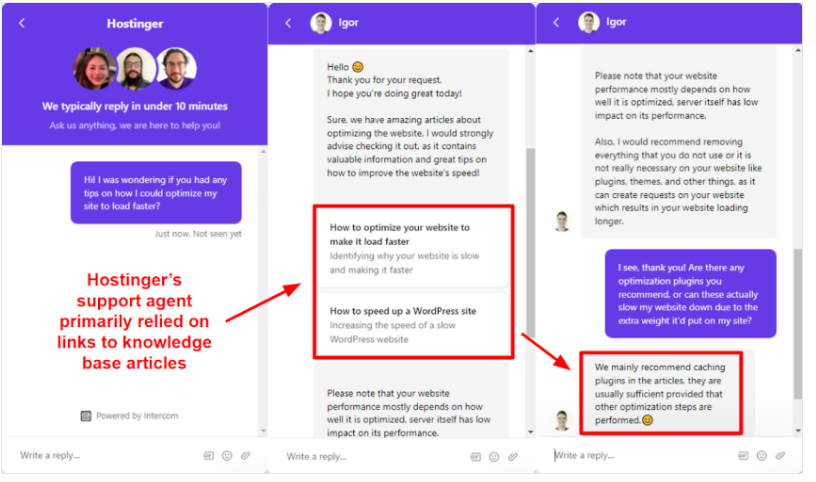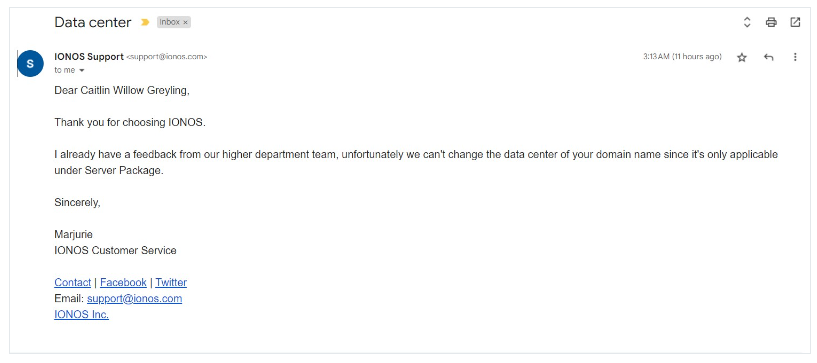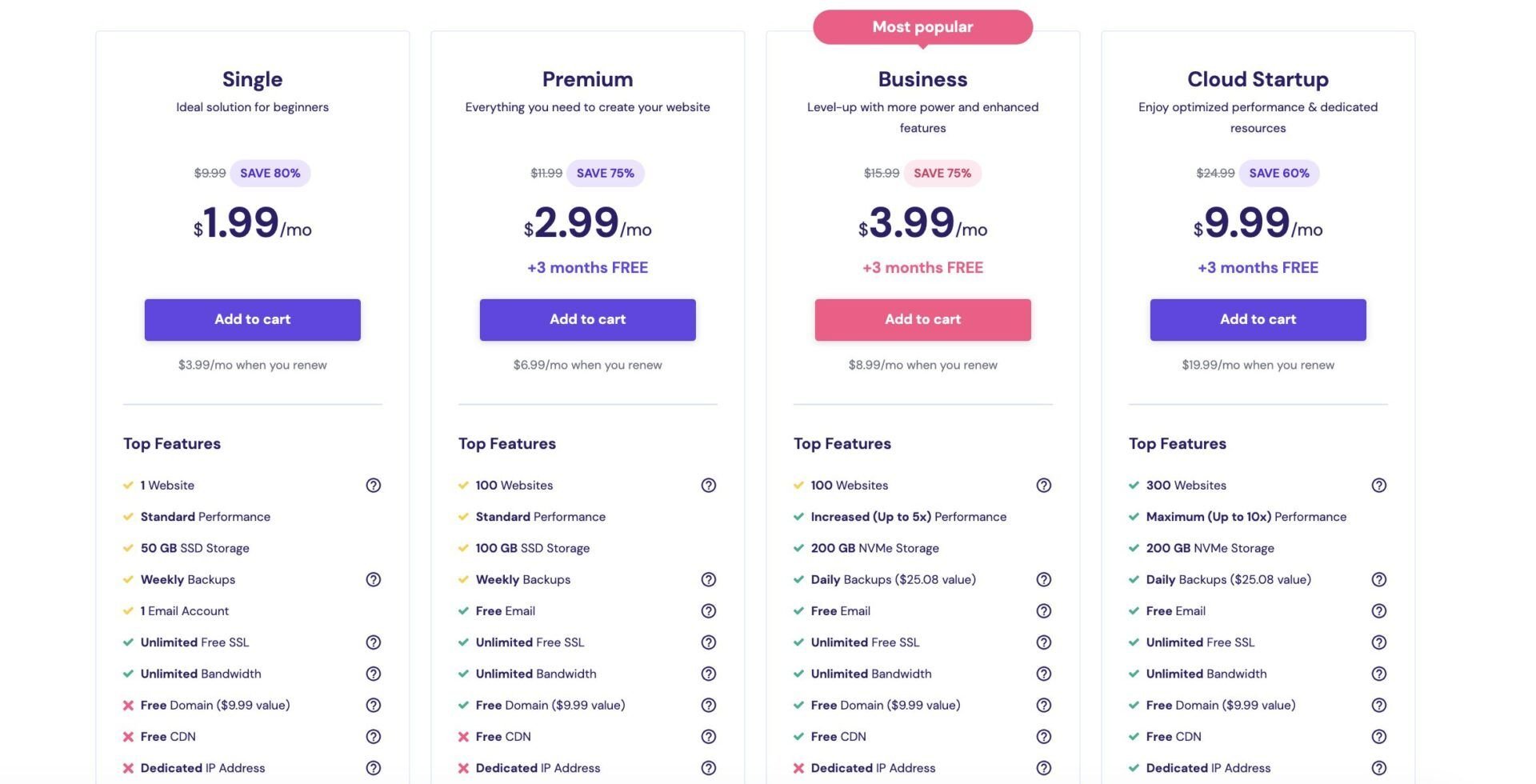Last updated on September 16th, 2025 at
I was stuck.
When I first started looking for web hosting, I wanted three things: speed, reliability, and affordability. Sounds simple, right? But finding a host that delivers all three without sneaky surprises is harder than it seems.
Hostinger looked promising — fast, cheap, and beginner-friendly.
IONOS seemed more professional — full of advanced features, ideal for multiple websites and bigger projects.
The problem? I didn’t want to pay for things I wouldn’t use… or get stuck with slow hosting after my site grew.
So I tested both. I set up websites, checked load times, monitored uptime, and explored support. I even pushed each host to handle traffic like a real-world scenario.
Here’s the honest breakdown, feature by feature. Let’s get into Hostinger vs IONOS 👇
| Feature | Hostinger | IONOS |
|---|---|---|
| Pricing | Starts at $1.99/mo | Starts at $4.00/mo |
| Premium: $2.49/mo | Plus: $1.00/mo | |
| Ease of Use | User-friendly hPanel | Clean control panel |
| Performance | 100% uptime, 175ms response time | 99.99% uptime, 758ms response time |
| Loading Speed | LCP: 1.728 seconds | LCP: 1.2 seconds |
| Security | DDoS protection, 24/7 monitoring | Free Wildcard SSL, daily backups |
| Customer Support | 24/7 live chat, fast responses | 24/7 chat and phone support |
| Overall Verdict | Best for budget-friendly hosting
| Great for flexibility and support |
Performance
💬 Who win For Performance:
Uptime
Hostinger
Hostinger delivered a perfect 100% uptime during my tests, ensuring your website stays online without interruptions.

IONOS
IONOS maintained a solid 99.99% uptime, with only minimal downtime, which is normal for most hosts.

Response Time
Hostinger
With an average response time of 175 milliseconds, Hostinger loads your site quickly, giving users a smooth experience.

IONOS
IONOS’s response time of 758 milliseconds is slower than Hostinger, meaning your site may take longer to load.

Website Loading Speed
Hostinger
Hostinger’s LCP of 1.728 seconds is well within Google’s recommended limits, providing fast load times even on full sites.

IONOS
With an LCP of 1.2 seconds, IONOS performs well, but Hostinger felt snappier and more responsive.

Load Handling
Hostinger
Hostinger easily handled 50 virtual users, maintaining fast response times even under higher traffic loads.

IONOS
IONOS struggled with 50 users, slowing down significantly, but handled 10 users without issue, making it less ideal for high traffic.

Winner –
Security Features: Which Hosting Offers Better Protection?
💬 Who win For security:
Hostinger is ideal if you want advanced security tools and 24/7 monitoring. IONOS offers great free SSL Wildcard certificates and data redundancy, but Hostinger takes the lead with its stronger malware protection and extra security layers.
Security can be boring to think about until something goes wrong. Hostinger gave me peace of mind. DDoS protection, constant server monitoring, daily or weekly backups, malware scanning—all of it worked silently in the background. Plus, features like two-factor authentication and domain privacy made me feel safe. I didn’t have to worry about technical stuff, and that’s huge when you just want to focus on your website.
IONOS offered strong security too. Free Wildcard SSL certificates and georedundant backups are great features, but some things felt basic compared to Hostinger’s extra layers. For someone like me who likes having that little extra security cushion, Hostinger felt more reassuring.
Winner –
Customer Support – Hostinger vs IONOS
💬 Who wins for customer support:
Hostinger is perfect if you prefer fast live chat responses and AI assistance for quick problem-solving. IONOS, however, shines if you prefer phone support and a more hands-on approach with customer service.
Hostinger

Here’s where the experience really showed. Hostinger’s live chat was impressively fast. I sent a question and got a reply almost instantly. Their AI assistant, Kodee, answered smaller queries and pointed me to guides I didn’t even know I needed. If you like solving problems quickly without waiting on the phone, this is perfect.

IONOS

IONOS, on the other hand, offers phone support, which I personally appreciate when a problem feels complex. Live chat is available but can get busy. Email or ticketing isn’t really there, so you might have to pick up the phone more often. If you value talking to someone directly, IONOS shines here—but it’s not as fast or frictionless as Hostinger for quick questions.

Winner –
Winner –







